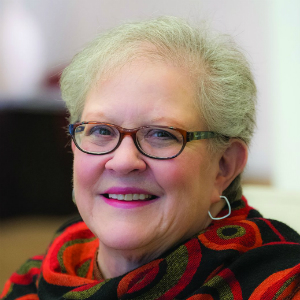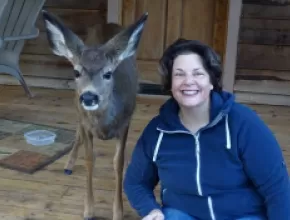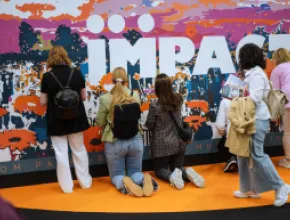You know when you read something and want to thank the author for writing? You hesitate because you think it’s an annoyance for them to hear from fans, like approaching a celebrity and encroaching on their personal space when, say, you see them at a restaurant.
Long ago, I learned how appreciative authors are when you say, “Thank you.”
When Rod Marymor, who founded the original meetings industry portal, Meetings Industry Mall, gave me a copy of The MacIntosh Way, by Guy Kawasaki, I read it on a BART train from San Francisco to the East Bay where I was staying.
I was so wowed by the writing and impressed that on the closing page Kawasaki said to get in touch with him by providing an email address, that I wrote and received an almost immediate reply!
Thus began devoted fandom. Or maybe it was a way to hook me to read more—I’ve read all Kawasaki’s books, relishing each one (See the blog for a recommendation of his current book, Wise Guy).
Thus, it was after friend, Donna Brandwein, recommended the author Thrity Umrigar that I began reading all of her books and was so taken by them that I sent her a note via Facebook. Yes, she responded with gratitude.
For this segment of the July 2019 Friday With Joan newsletter, I asked Thrity Umrigar, and my neighbors Matthew Reimer and Leighton Brown, who recently published We Are Everywhere: Protest, Power and Pride in the History of Queer Liberation, if they would be willing to respond to a few questions. They are all busy writing and they still agreed. I am grateful for their writing and their time for us.
Thrity Umrigar, Novelist
Joan: What I’ve read about you is that you were, as a child, a reader. You began your writing career as a journalist and are now a book author. What drew you to reading?
Thrity Umrigar: I was a sickly child and not terribly athletic. There were problems in my home. Reading—and soon after, writing—became a refuge for me. It opened up a world to me and taught me that millions of people all over the world had the same feelings and thoughts that I did. This was a very comforting thought. And almost as soon as I began to read, I began to write, and this, in turn, became a form of self-expression like none other.
Joan: As a young person, what genre(s) did you favor?
Thrity: I first started reading the novels of a wonderful British writer named Enid Blyton, who is beloved in any part of the globe where the British once had a presence. She wrote a ton of adventure series books—The Famous Five, The Secret Seven, etc. I inhaled those books and read them so frequently that I could recite entire pages from memory. I honestly think that was the foundation that resulted in my lifelong love for language.
Joan: In each of your books, you have caused me to think even more than I had about the circumstances of one’s birth and the impact. There is—from what I’ve read about you and from the books—an intention to expose readers to others’ lives. How has this purpose changed—or has it?—from your writing as a journalist?
Thrity: You know, I don’t think my purpose in writing has changed that much, except that I have more freedom in what topics I want to explore in fiction and how I can “bend” the arc of the story to take it in whatever direction I want.
But if my writings have had any “goals,” I guess it’s been to elicit compassion in the reader, to make them understand how little control people often have in their own lives.
I think the myth of “free will” is an elitist one. The reality is that there are millions of people who have very little control over their lives. It goes against the American Dream and our national mythology to believe this, but it’s true. I just want my work—journalistic and literary—to soften peoples’ hearts and expose them to cultures and individuals who are different than them but share the same hopes.
Joan: Because you also teach, what two books do you recommend to those who want to learn to be better writers in their professional lives?
Thrity: Honestly, rather than recommend some writing textbooks, I would say to read exhaustively and expose yourself to all kinds of writing. Soon, you will be able to discern good writing from mediocre.
Joan: What genres do you like reading for pleasure now?
Thrity: I’m mostly still drawn to literary fiction, although I’ve read a few “crime” or mystery novels in the past few years and have enjoyed them, if they are well written. I just finished The Woman in the Window and thought it was very well done.
Joan: Who are the book authors (fiction or non-fiction) you now enjoy most?
Thrity: Oh my God. How does one answer a question like this? Okay, I’ll give it a whirl: Toni Morrison, Virginia Woolf, Jennifer Egan, Ian McEwan, Salman Rushdie, Ben Fountain. That’s 5 percent of the people I love.
Joan: And other than your manuscript [for a new novel], what are you reading now?
Thrity: A delightful first novel called Eleanor Oliphant is Fine. It was warm, funny, heartbreaking, compassionate—a wonderful reminder that a novel should be entertaining and wise.
Joan: And finally, as I’ve asked colleagues, do you read mainly in print, digitally, or do you listen to books?
Thrity: Mainly in print.
Matthew Riemer and Leighton Brown, Authors, We Are Everywhere: Protest, Power, and Pride in the History of Queer Liberation, and creators of Instagram’s @lgbt_history, www.queerhistory.com; contact@queerhistory.com
Joan: You’ve created an amazing book, We Are Everywhere: Protest, Power and Pride in the History of Queer Liberation. What prompted you to create this book?
Matthew Riemer and Leighton Brown: In November 2015, we happened to attend the unveiling of Frank Kameny’s headstone at Congressional Cemetery in D.C. Although we knew of Kameny—who is best known for coining, “Gay Is Good”—we certainly didn’t have much appreciation for just how important he was to queer history (and history generally).
During that ceremony, as we listened to historians and activists speak about Kameny’s life, we both realized that we knew next to nothing about queer history. We didn’t recognize the names, didn’t understand the issues being referenced, and we were shocked by the details. What was so striking is that, as privileged, white, cisgender, able-bodied men, both of whom majored in history and then became attorneys, we should have had access to our history, and if we didn’t, certainly we weren’t alone.
It was a very sad experience, a very frustrating moment; we wanted not only to know what we didn’t know, we wanted to know why we didn’t know it.
From that day forward, we dove in, eventually starting an Instagram account, @lgbt_history, although we knew almost nothing about social media. We approached the account like lawyers: heavily researched, well-written, as objective as possible, and always accompanied by these striking images that were contextualized with the narrative.
We had hoped to engage with a few hundred people; we had no idea. Within a few months, we had thousands of followers. As of this writing, we’re over 450,000. We hit a nerve. Queer people are hungry for their history, and not just the myths, but the facts.
As the account grew, we had to make a decision: What’s our responsibility? If we were to continue, we had to dedicate ourselves fully to this endeavor, and we have. So, in 2017, when Ten Speed Press asked if we’d like to do a book, we knew exactly what we wanted to do; we wanted to merge narrative and text to create the book we needed years ago.
While we’re proud of what we’ve done on Instagram, that medium only allows for individual posts; we can’t connect the stories, in other words.
With We Are Everywhere, our main goal was to show just how connected the stories are. Once you grapple with history, once you can really see the connections, the adage that “none of us is free until all of us are free” becomes much more real, much more meaningful.
One of the main tools of oppression is the denial of history. Without history, underrepresented people cannot create a future. What has always driven our work, and what guides We Are Everywhere, is that queer people have a history and we deserve to know it, good, bad and ugly.
Joan: There is more movement than ever in the hospitality industry for inclusion. What other books do you recommend on LGBTQA issues for people who work for hotels? Plan meetings? Support meetings and conventions?
Matthew and Leighton: This is tough. In all sincerity, when it comes to learning queer history in an accessible, meaningful way, we recommend We Are Everywhere. Beyond that, there are incredible history texts, though whether or not that’s for the hospitality industry is unclear. Here are a few, history and otherwise:
- Transgender 101: A Simple Guide to a Complex Issue, by Nicholas Teich
- Stonewall: The Riots That Sparked the Gay Revolution, by David Carter
- Sister Outsider: Essays & Speeches, by Audre Lorde
- Unapologetic, by Charlene Carruthers
- White Fragility: Why It’s So Hard for White People to Talk About Racism, by Robin Diangelo
Joan: As well as authors, what one book each do you recommend, for pleasure or professional reading?
Matthew and Leighton: The list above really does cover it. Perhaps we’d add Stone Butch Blues, by Leslie Feinberg, and Gay New York, by George Chauncey.
Joan: Do you read mainly in print or digitally?
Matthew and Leighton: We read mainly in print.
Related Content From the July 2019 Edition of Friday With Joan
- The Power of Reading Books: Life, Spirit and Knowledge Enhancement
- Important Books Meeting Planners Think Are Relevant to Their Lives and Profession
- What's Your Take? July 2019 FWJ Poll
Click here to view additional content in the 07.12.19 Friday With Joan newsletter.







